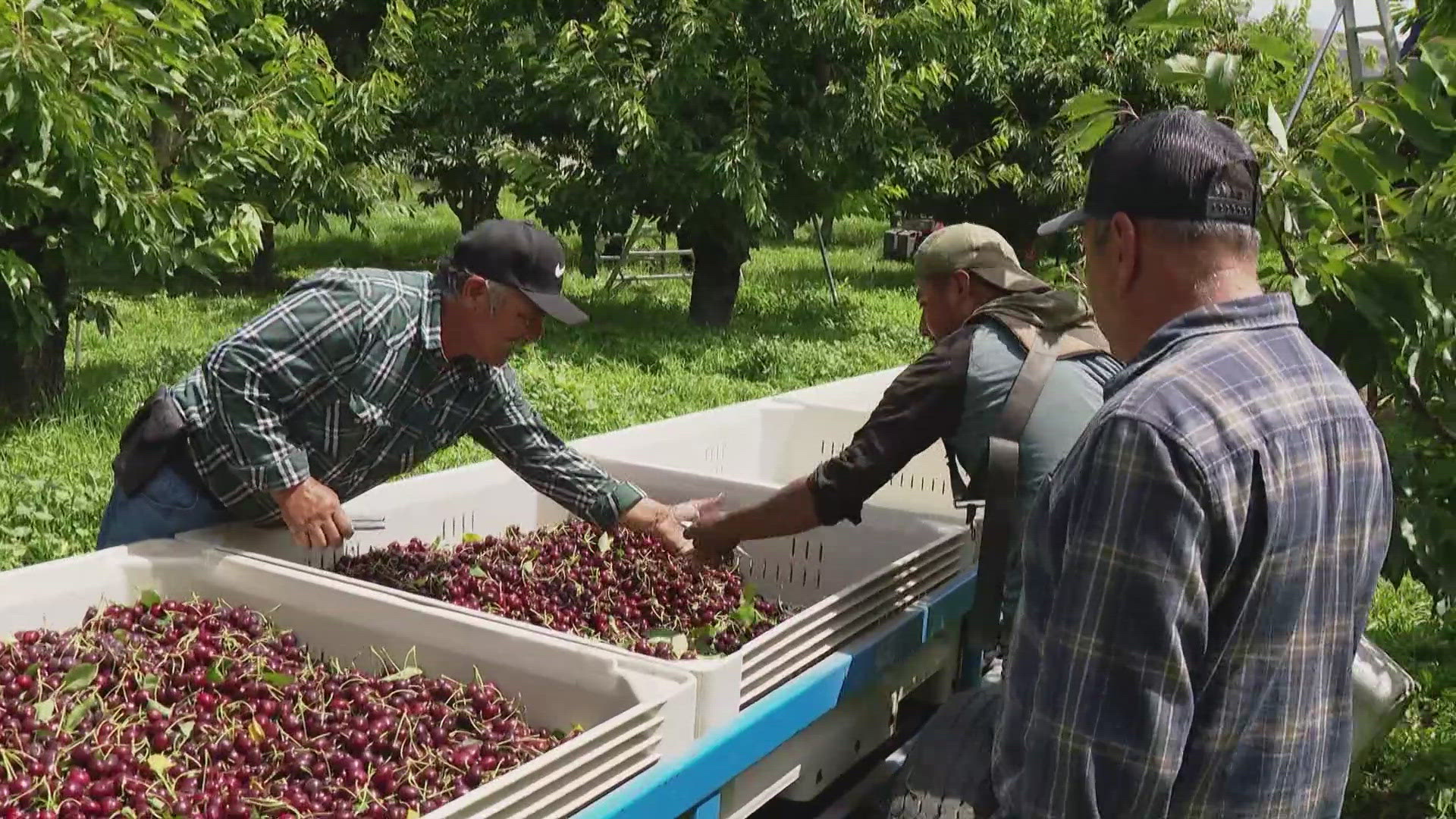Rosa Hernandez is tired.
She is not just tired from her long days of picking fruit in a Wenatchee orchard. She's tired from the constant stress on her friends and family.
"Right now, there is a lot of fear," Hernandez said.
It's a fear of being arrested and deported, whether you're documented or undocumented.
Social media posts are spreading rumors about ICE checkpoints and mass farm worker deportations.
None of that has been verified in Washington state, but the damage is done. Many immigrant workers are simply staying home.
Hernandez's farm is down 50% of its normal workforce.
"The chaos that they see on social media, the chaos that they see on the news, they assume it's going to happen everywhere else," said Hernandez, who has worked up and down the West Coast for 16 years. "I've never seen it like this."
The harvest season has a short window of opportunity. It's a window that is rapidly closing.
The lack of workers already has fruit dying on the vine.
Carlos Torres said he's looking at losing a third of his cherry crop at PLM Orchards because depleted workers can't pick it fast enough.
With apples and pears waiting to be harvested, Torres worries this is just the beginning of a long, fruitless summer.
"We could lose everything," Torres said. "We have to borrow money from the bank. The bank expects you to harvest everything. If we don't pay on time, they just cut our funding and that's it. I'm very concerned."
According to the United States Department of Agriculture, 40-50% of migrant farm workers are undocumented.
But without them, food goes spoiled, farms go under and prices go up.
Washington Fruit Tree Association President Jon DeVaney said the Trump administration must allow immigrants to stay in the fields – documented or not -- unless they have committed serious crimes.
"We're having conversations," DeVaney said. "The first step is recognizing there is a problem. I think we have that at this point."
As for Hernandez, she continues picking food for America's families so she can simply feed her own.
"It's a cycle, and if the cycle is broken, it's gonna be chaos," Hernandez said.

